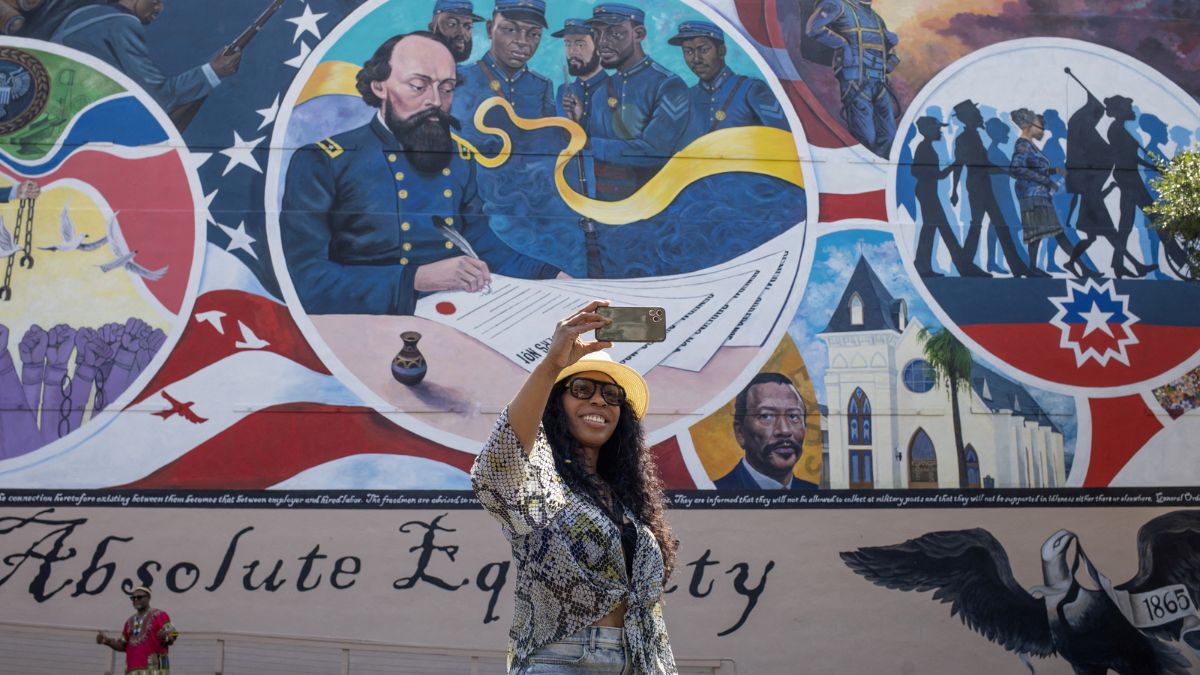On 19 June, the United States observes ‘Juneteenth’, a historic day that commemorates the end of slavery and celebrates the freedom that had reached all corners of the country.
An occasion to honour the day in 1865 when enslaved African Americans in Texas learned they were free, it is also known as Emancipation Day or Freedom Day. Many refer to it as the Second Independence Day.
Cities across the US plan festivities that include parades, street parties, and cookouts to mark the federal holiday. Here’s how Juneteenth became a nationwide celebration.
The historical roots
The origins of Juneteenth date back to June 19, 1865, when Union General Gordon Granger arrived in Galveston, Texas, to announce the end of the Civil War and the emancipation of all enslaved individuals.
This historic declaration came more than two years after President Abraham Lincoln’s Emancipation Proclamation, which had officially freed slaves in the Confederate states in 1863.
As per History.com, the Confederate States was a group of 11 states that seceded from the United States in 1860 following the election of President Abraham Lincoln as American.
However, the enforcement of Lincoln’s proclamation relied on the advance of Union troops, and Texas, being one of the most remote Confederate states with a low presence of Union forces, had largely avoided the executive order.
Impact Shorts
More ShortsAfter 2,000 troops arrived, General Granger’s General Order No. 3 informed the people of Texas that all 250,000 enslaved individuals were now free, emphasising the equality of personal rights and property between former masters and slaves.
For Black people, the news marked an end of an institution that had brutalised them for centuries. The moment was “indescribable joy” that was met with large celebrations in Texas, historian C.R. Gibbs told The Washington Post.
How is Juneteenth celebrated?
For decades, Texas was the heart of major Juneteenth festivities, but in recent years, these traditions have spread nationwide. The early celebrations of Juneteenth were not just about rejoicing; they were also a means to educate newly freed enslaved people about their voting rights.
On its first anniversary in 1866, a large procession took place in Galveston, drawing hundreds of men, women, and children. In Houston, African American community leaders and businessmen gathered funds to buy 10 acres of land for a commemorative site, which eventually became known as Emancipation Park.
Today, Celebrations of Juneteenth have evolved and vary widely across the country. For some families and friends, the holiday is a reason to meet and rejoice over festive barbecue meals, music, and drinks.
Colour Red has been part of the Juneteenth menu for generations. It symbolises the bloodshed and sacrifice of enslaved ancestors. Other items include barbecued ribs or other red meat, watermelon, and red velvet cake. Drinks like fruit punch and red Kool-Aid may make an appearance at the table, according to an AP report.
While some celebrate Emancipation Day the traditional way and hold celebration marches, parades, and cultural performances.
Just last week, the White House got an early start on Juneteenth and Black Music Month celebrations with a lively concert on the South Lawn. The event featured a star-studded lineup, including legendary singers Gladys Knight and Patti LaBelle, who performed alongside artists from gospel, rap, jazz, and other genres. The event was also attended by Vice President Kamala Harris, the first Black vice president, who danced on stage with gospel singer Kirk Franklin, as reported by the AP.
For some, the occasion is a day of rest and remembrance. Many people choose to engage in community service, attend educational panels and film screenings, or simply take the time off to commemorate the occasion.
Why has Juneteenth become so important?
In May 2020, the tragic death of George Floyd, a 46-year-old Black man in the custody of Minneapolis police, ignited nationwide protests against racial injustice. These demonstrations fueled the momentum of the Black Lives Matter movement and triggered significant social and legislative changes.
One of the most notable outcomes was the signing of the ‘Juneteenth National Independence Day Act’ by President Joe Biden in 2021, officially making June 19 a federal holiday. This legislation received overwhelming bipartisan support in Congress, with only 14 House Republicans opposing it.
Later in a White House briefing, President Biden remarked that establishing Juneteenth as a holiday was “one of the greatest honors” of his presidency.
As of today, at least 30 states and the District of Columbia recognise Juneteenth as a public holiday. According to the Pew Research Center, every state has at some point acknowledged Juneteenth as a day of observance, ensuring its commemoration even if it is not a designated day off.
With input from agencies
)